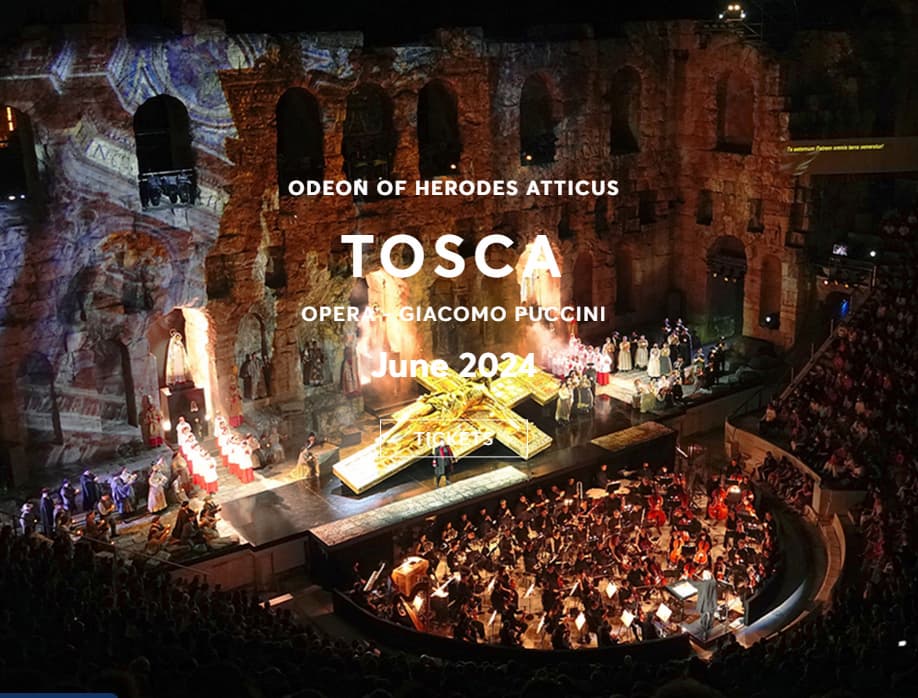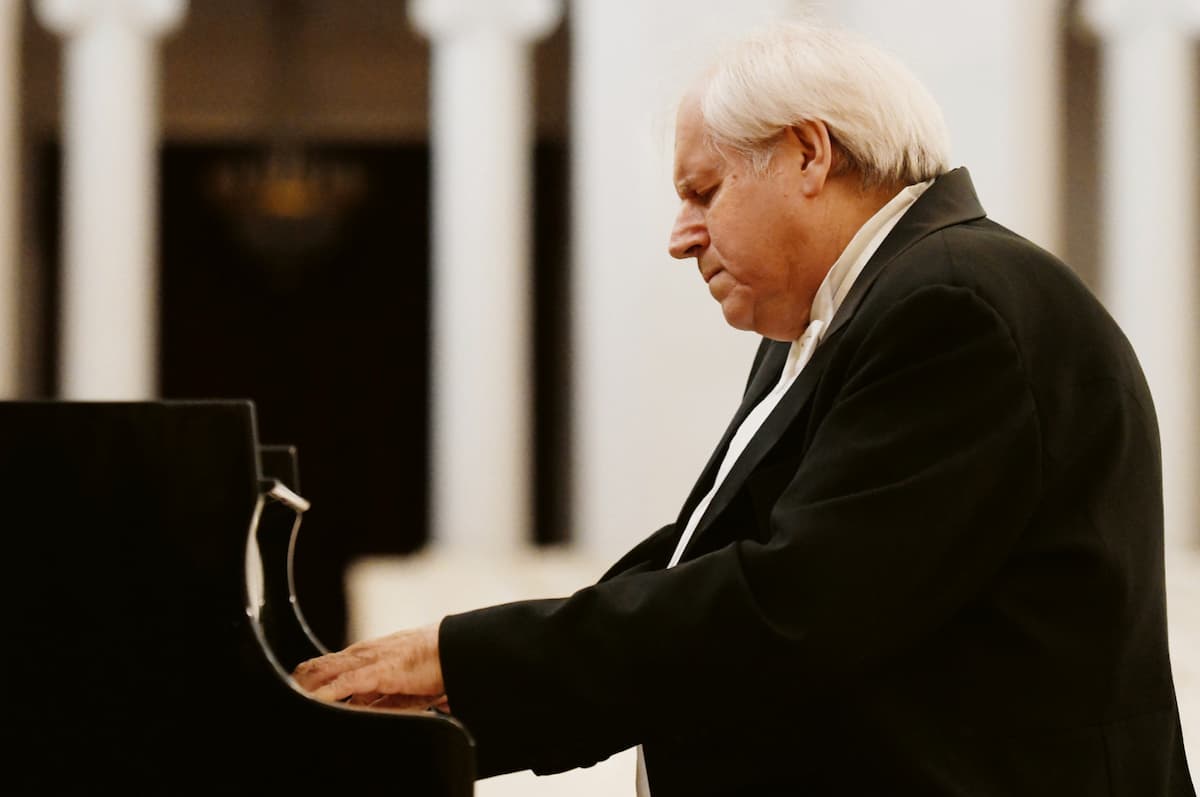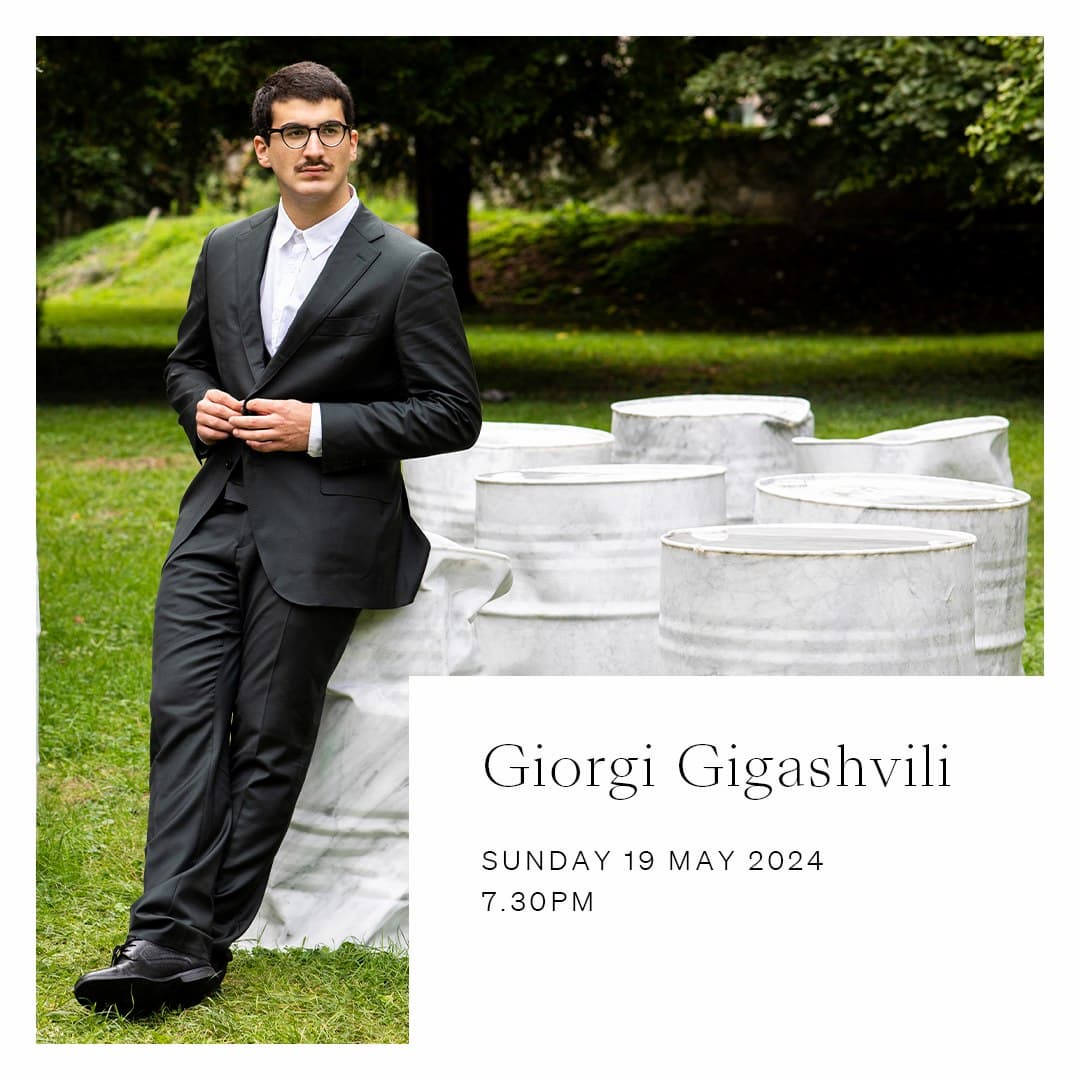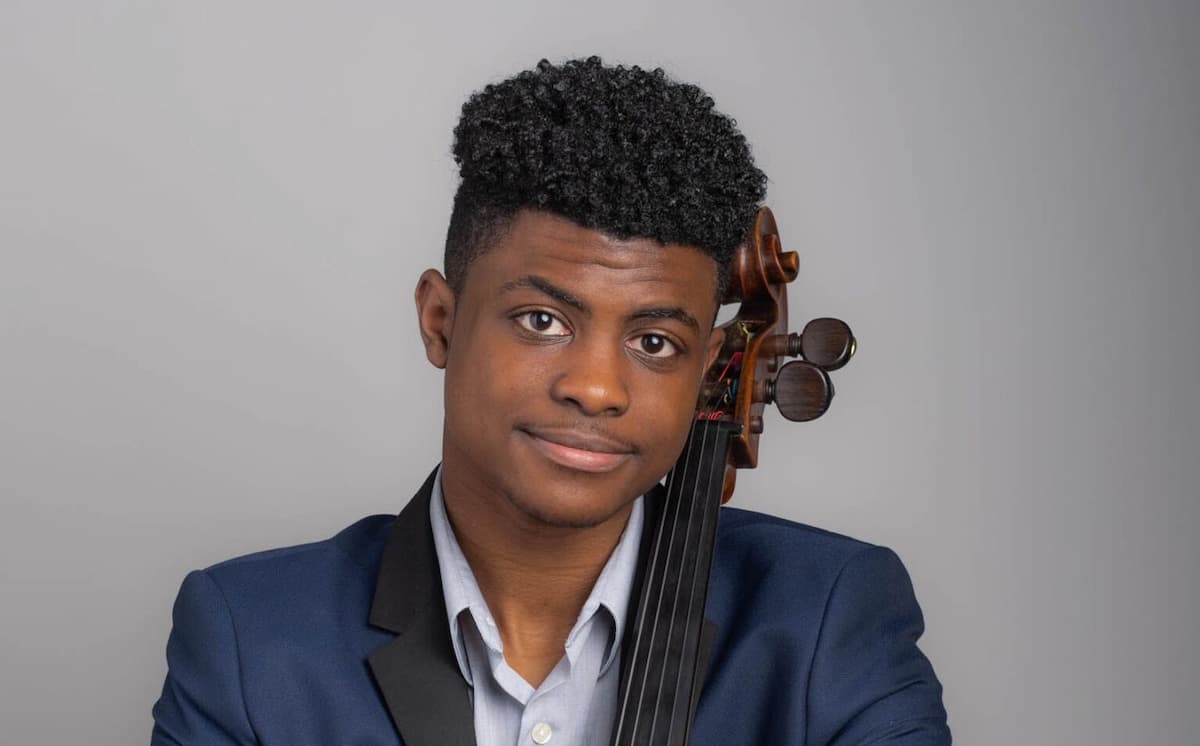Anyone who tried to follow Krystian Zimerman’s concerts would agree that it’s a formidable challenge – a limited number of engagements every year, no general manager, and no official website listing his appearances. However, it’s always something to listen to him live. In the studio, he is a perfectionist; on stage, his playing has such an instinctive approach, spontaneity, and inexplicable intensity second to none.
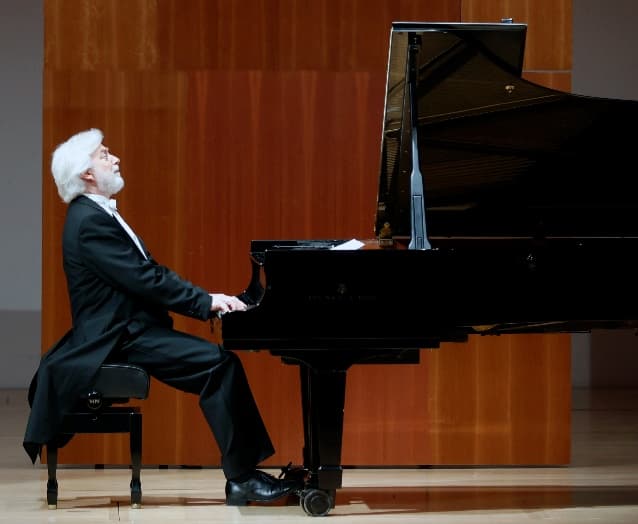
Krystian Zimerman © 2024 by Archv KFR/Peter Wieler
Zimerman does have his idiosyncrasies (and I mean it in a positive way), such as insisting on bringing his own piano or at least keyboard, adjusting the instrument’s mechanics himself, and being ultra-sensitive about audience recordings. But all these do not stem from an inflated ego but rather a pursuit of perfection and respect for the music. (On the contrary, I can’t understand how some pianists have little interest in the instrument – akin to an artisan who doesn’t care about his tools.)
This was my second time listening to Zimerman in person. To be frank, Zimerman playing anything would be attractive enough to make one travel just for him, let alone a programme of Bach Partita No. 2, Chopin Piano Sonata No. 2, Debussy Estampes, and Szymanowski Variations on a Polish Theme, Op. 10 – that’s just irresistible. This is how I found myself back in Wuppertal, five years after I first visited the city for a recital by Grigory Sokolov. (Read Grigory Sokolov in Wuppertal)
Bach’s Partita No. 2 in C minor opened with operatic breadth in the Sinfonia. It was then set in an alluringly fluid metre with a walking bass line before Zimerman unleashed the Allegro section at full throttle, which was really a tour de force with effortless dexterity. While the Allemande and Courante might have benefitted from greater clarity, the Sarabande exhibited careful shaping and effused an unutterable sorrow. As far as repeats were concerned, they were executed with a different emphasis on voicing and phrasing. The highlight of the Partita surely had to be the last two movements – the Rondeau sprang to life with such an inviting dancing pulse and an infectious groove, and the Capriccio literally possessed true caprice and buoyancy, coupled with crystalline clarity of lines. It’s apparent that for Zimerman, Bach’s music is not a museumified antique but a living entity.
Chopin’s Piano Sonata No. 2 in B-flat minor commenced with a menacing doppio movimento, though later marred by some overpedalling. Yet, the Scherzo was truly diabolical – as threatening as one could imagine – with a marked accent on the third beat that underscored the underlying mazurka pulse. The Marche funèbre started off with a remarkably long crescendo and resounding bell-like sonorities filling the hall. The angelic trio (especially the last time it appeared) emerged exquisitely crafted and voiced while maintaining such serenity that could reduce one to tears, just like how a cuddle can offer solace. Towards the end, there was a striking imagery of a funeral procession gradually moving away, though less marked than the last time I heard him live. Zimerman described this idea in an interview:
I lived next to a church, and every now and then the funeral procession was passing my window. I could hear the orchestra already from very far, and you never noticed the moment of the beginning. I intently listened when they passed, you could hear the phenomenon of dynamic and loudness. They played exactly as loud when they were passing my window, but at some point, I couldn’t hear them anymore. – Krystian Zimerman (2010)
The finale induced palpitations with its tumultuous whirlwind and moments of suspense before the final apocalypse. After the last note, Zimerman slowly emerged from the piano, appearing defeated as if having confronted death directly.
The instrument remained untouched during the intermission, yet as Zimerman struck the opening notes of Pagodes from Debussy’s Estampes, he conjured such a radiant glow and iridescent colours in stark contrast to the darkness and desperation in the Sonata as if it’s another piano. There was, unfortunately, a memory lapse in the beginning, but the finely layered playing and the shimmering arpeggios more than compensated for it. La soirée dans Grenade was sensual and exotic with its habanera rhythm and Zimerman’s rapid shifts in soundscape and sense of spontaneity. Jardins sous la pluie, despite some technical mishaps, vividly portrayed the scene of a garden in a raging thunderstorm.
Concluding the programme was Szymanowski’s fiendishly difficult Variations on a Polish Theme, Op. 10, a work Zimerman has featured in his recitals since 1985 but remained largely unknown to the public until his recent Szymanowski album. While his studio recording was more deliberately paced, the performance here enjoyed greater freedom in its flow, and the variations were no longer individual entities but instead a logical continuation of the preceding one, traversing such an emotional landscape as the theme metamorphosed – nostalgia, anguish, lament, embracing warmth, patriotic pride and so much more.
Visibly affected by his mistakes in Debussy, Zimerman was at times less assured in Szymanowski. Still, much remained to admire – the theme unfolded with such poetic simplicity, Variation 5 oozed autumnal melancholy, and the heavily Scriabinesque Variation 7 was replete with fantasy. And that finale – it still had the brilliance and glory the music demanded.
Karol Szymanowski: Variations on a Polish Theme, Op. 10 (Krystian Zimerman, piano)
The only encore of the evening was Rachmaninoff’s Prelude in D major, Op. 23 No. 4. Set at a flowing pace, it had perfect lyricism, nuanced voicing, and tenderness.
This recital was a superb display of pianism, wisdom, poetry, and fire. Well, there were of course imperfections, but that’s not the point of live performances, for “music is using sound to organise emotions in time”, as Zimerman aptly put it.
For more of the best in classical music, sign up for our E-Newsletter

